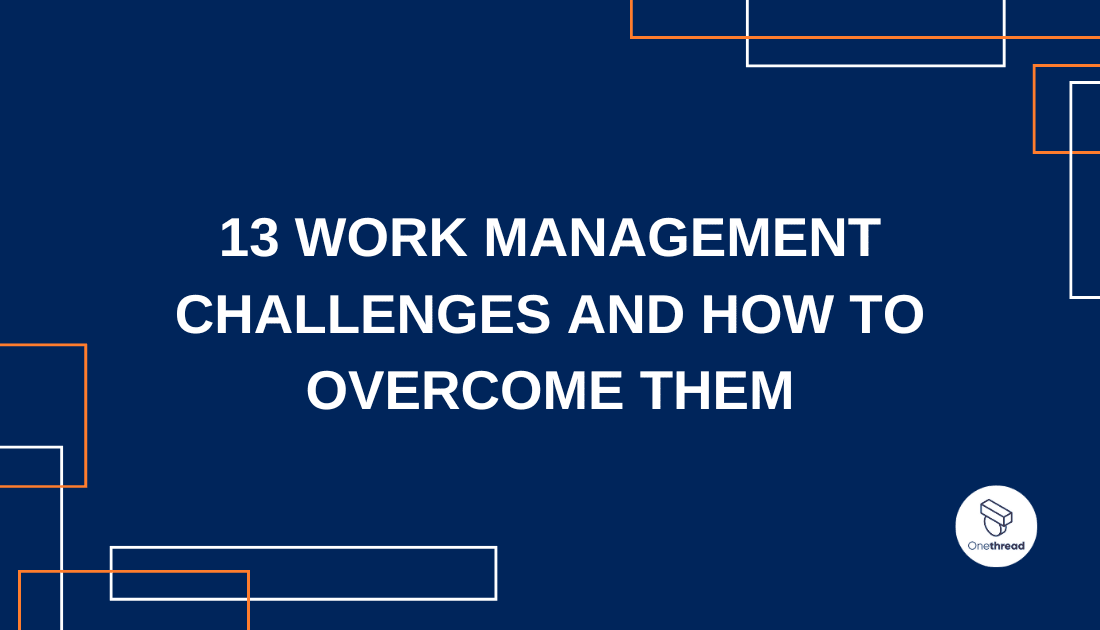In an era where work inundates us at breakneck speed, mastering the art of managing tasks is indispensable. “Work Management” is the linchpin that holds the fabric of efficiency and productivity together.
Whether you’re a professional on the verge of burnout or an entrepreneur in the labyrinth of deadlines, this insightful article is your roadmap to a more controlled and effective work life.
Delve into an array of pragmatic strategies including goal-setting, workflow optimization, time management, delegation, organization, and perpetual self-assessment to revamp your work ethic. Embrace the change to unleash your true potential and stride confidently towards success.
What is work management?
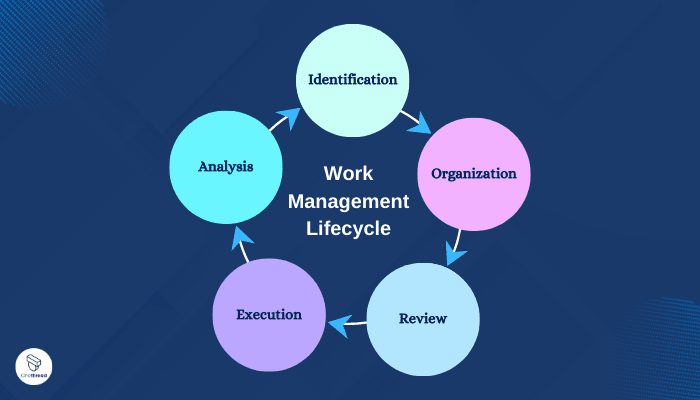
Work management is a strategic approach that addresses queries such as, “How can the success rate of projects be amplified?” or “How can processes be refined to achieve business goals and objectives?” It encompasses the management of team workflows and workloads pertinent to a project’s scope.
Essentially, it involves employing the fundamental principles of project management to foster a conducive and profitable work environment.
Individual and Team Perspectives
Work management operates both at the individual and team levels. On the individual front, it entails managing emails and jotting down task lists related to the project. Conversely, at the team level, if you find yourself spending an excessive amount of time managing work, embracing work management software can be a game-changer.
It facilitates real-time collaboration among team members, streamlining the process from inception to completion.
Harnessing Tools for Enhanced Collaboration
Onethread exemplifies the potential of work management tools. As a collaborative platform, it empowers teams and organizations to work synergistically. With Onethread, you can oversee processes, monitor progress at various stages, effortlessly access project information, allocate tasks, and remain abreast with updates in real-time.
Teams looking to optimize their work management processes should consider adopting tools that encapsulate the quintessential features of work management software.
13 Most Common Work Management Challenges
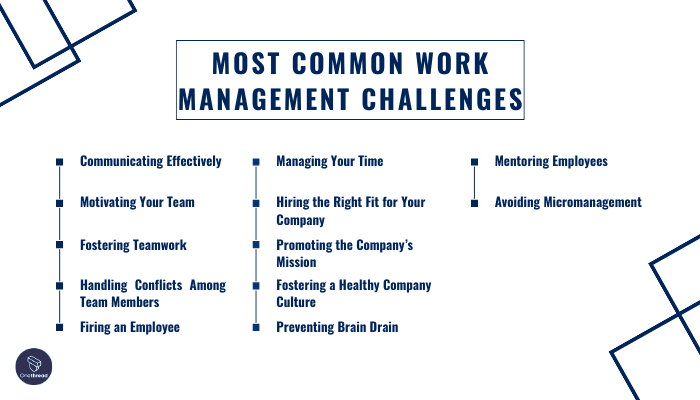
Management is a complex role that requires a unique blend of skills, including communication, motivation, conflict resolution, and time management. Managers often face a variety of challenges, some of which may seem insurmountable.
However, with the right strategies and tools, these challenges can be overcome. Here are the 13 most common management challenges and how to overcome them:
1. Communicating Effectively
Communication is a key aspect of management, but it can be challenging due to the power dynamics between managers and employees. To overcome this, managers should foster an open and trusting environment where employees feel comfortable discussing their concerns. Regular, casual conversations can also help to build rapport and make more formal discussions less intimidating.
2. Motivating Your Team
Keeping a team motivated can be difficult, especially when tasks become monotonous or meetings seem redundant. To keep your team engaged, try to connect individual goals with company resources and show employees how their work contributes to the company’s overall objectives.
3. Fostering Teamwork
Different work styles can make fostering teamwork a challenge. Understanding individual work styles and incorporating them into a team-oriented plan can help to create a more harmonious and productive work environment.
4. Handling Conflicts Among Team Members
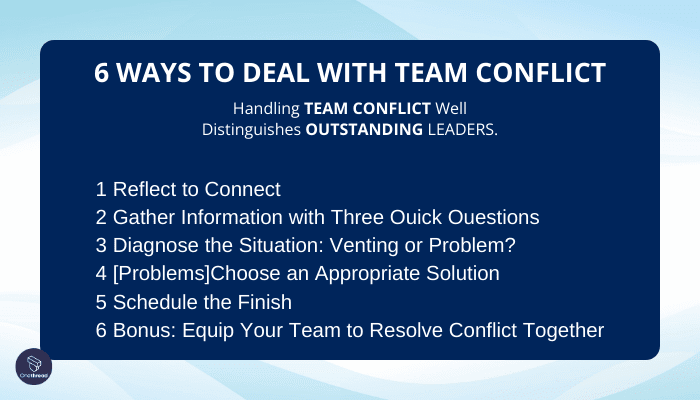
Workplace conflicts can disrupt team cohesion and productivity. To resolve conflicts, organize a meeting where each party can express their feelings respectfully while you mediate neutrally.
Identifying underlying frustrations and refocusing the conversation on creating a positive work environment can help to resolve disputes.
5. Firing an Employee
Terminating an employee is never easy. To make the process less painful, try to address performance issues early and provide clear, honest feedback when termination becomes necessary.
6. Managing Your Time
With so many tasks to juggle, time management can be a major challenge for managers. Keeping a detailed calendar and setting daily and weekly goals can help to keep your schedule on track. Delegating tasks can also help to distribute your time more evenly.
7. Hiring the Right Fit for Your Company
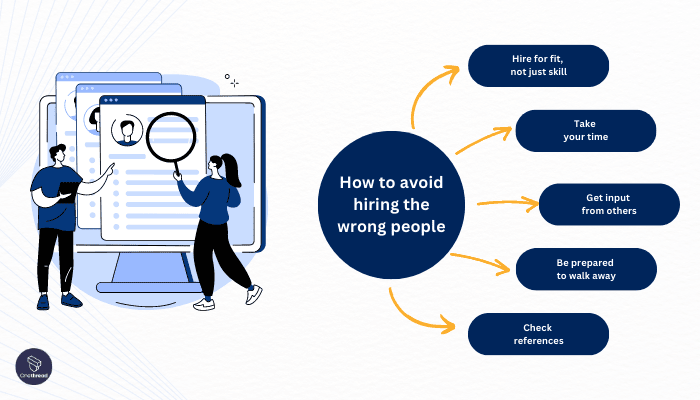
Finding the right candidate among a sea of applicants can be daunting. To make the process easier, identify the core talents required for the position and look beyond an applicant’s resume to their work ethic and values.
Utilizing resume templates can also help streamline the initial review process and ensure consistency in evaluating applicants.
8. Promoting the Company’s Mission
Promoting a company’s mission can be challenging, especially for newer companies. To overcome this, stay focused on your mission and use it to guide work-related decisions.
9. Fostering a Healthy Company Culture
Creating a consistent company culture requires balancing a company’s mission, values, and goals. Communicating these elements clearly and regularly can help to foster a positive and cohesive company culture.
10. Preventing Brain Drain
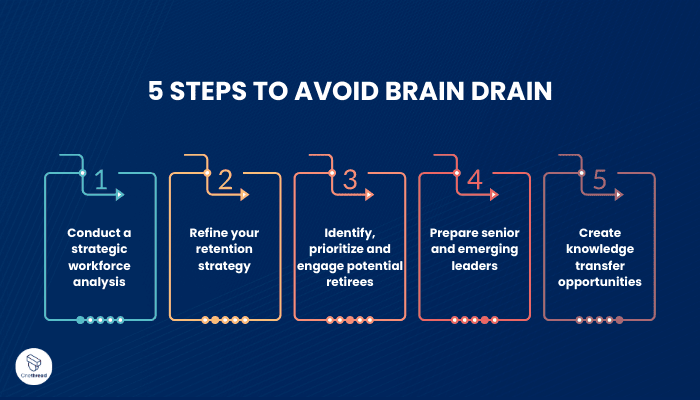
Keeping talented employees engaged and committed to your company can be challenging. Offering professional development opportunities, maintaining a healthy work-life balance, and paying competitive salaries can help to prevent brain drain.
11. Mentoring Employees
Developing mentoring relationships requires getting to know your employees on a deeper level. Scheduling regular meetings to discuss career goals can help to foster these relationships.
12. Avoiding Micromanagement
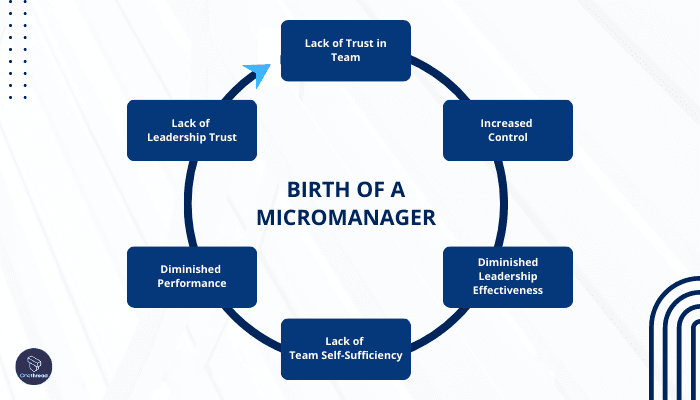
While it’s important to stay involved in your employees’ work, micromanaging can inhibit their ability to work independently. Trusting your employees and allowing them to approach you with questions or concerns can help to avoid this.
13. Dealing with Uncertainty
Management often involves making difficult decisions without clear right or wrong answers. Drawing on your professional instincts and internal values can help you navigate these uncertain situations with confidence.
Does Your Team Need a Work Management Tool?
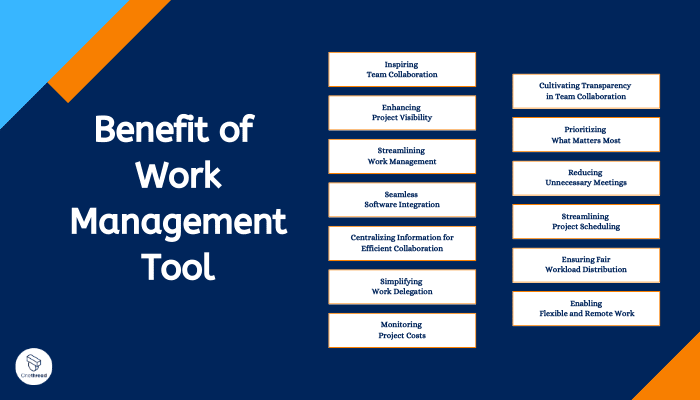
While many teams work without any particular work management tool, it is not often possible to juggle everything in our head. With the rise of technology, modern workplaces have upgraded the pace of work, which means more things to manage and remember.
Without a proper work management tool, you are most likely to leave a few things here and there. So, let’s see how a proper work management tool can help you organize your work:
Inspiring Team Collaboration
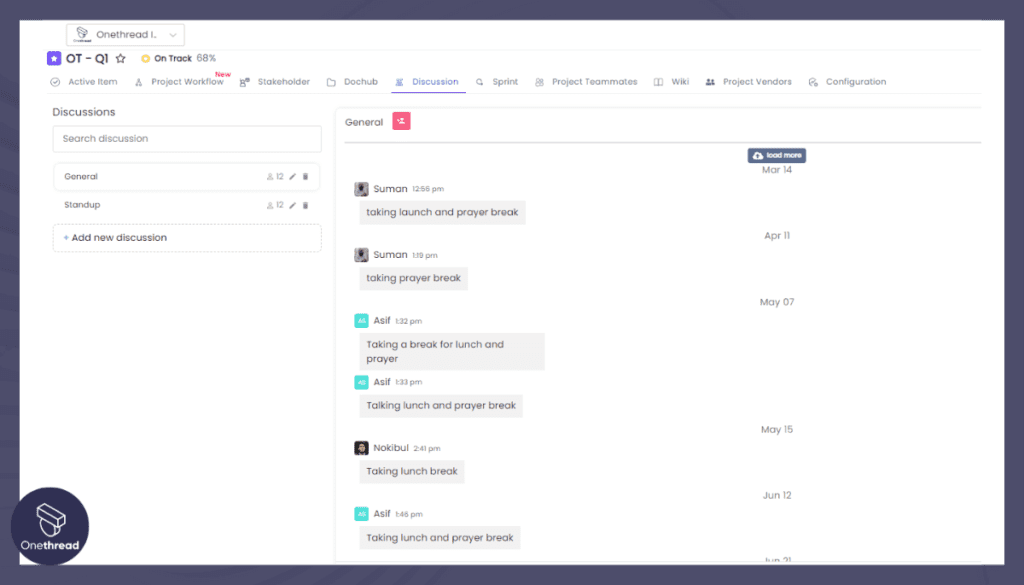
Collaboration is essential for project success, but traditional methods like email can be inefficient. A working management tool promotes effective team collaboration by providing a centralized platform for communication, document sharing, and task management.
Unlike relying on outdated approaches, teams can work together seamlessly, regardless of their location, ensuring everyone stays updated on assigned tasks and upcoming schedules.
Enhancing Project Visibility
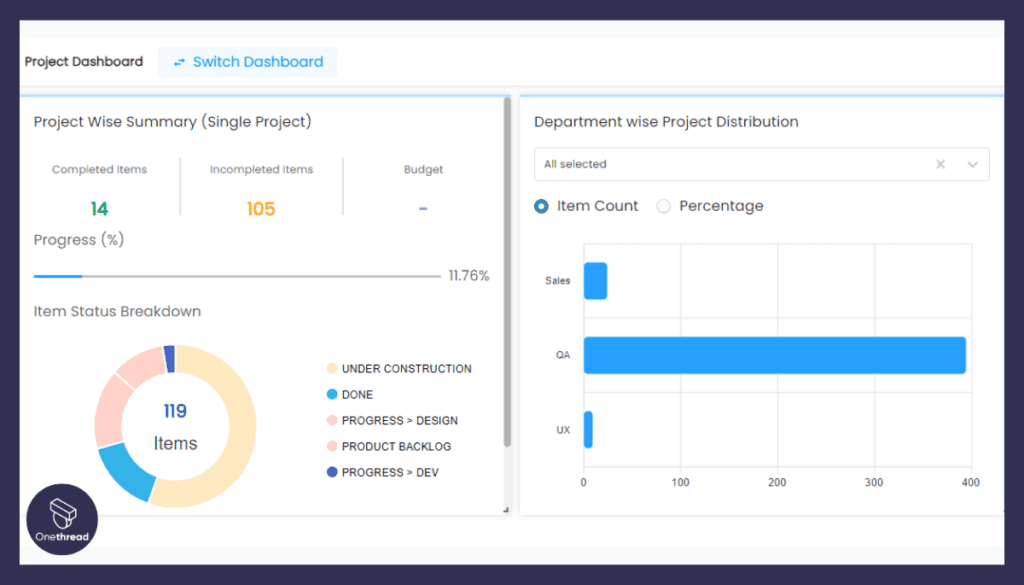
Maintaining control over project schedules and meeting client expectations can be challenging without a proper tool. A work management tool allows you to make project schedules visible to all stakeholders, enabling easy access to progress reports and real-time updates.
By having a centralized schedule that can be shared with clients and team members, you can avoid delays, meet shifting priorities, and keep everyone informed, ultimately improving client satisfaction.
Tip: Consider using Onethread’s reporting feature to stay on top of project deadlines.
Streamlining Work Management
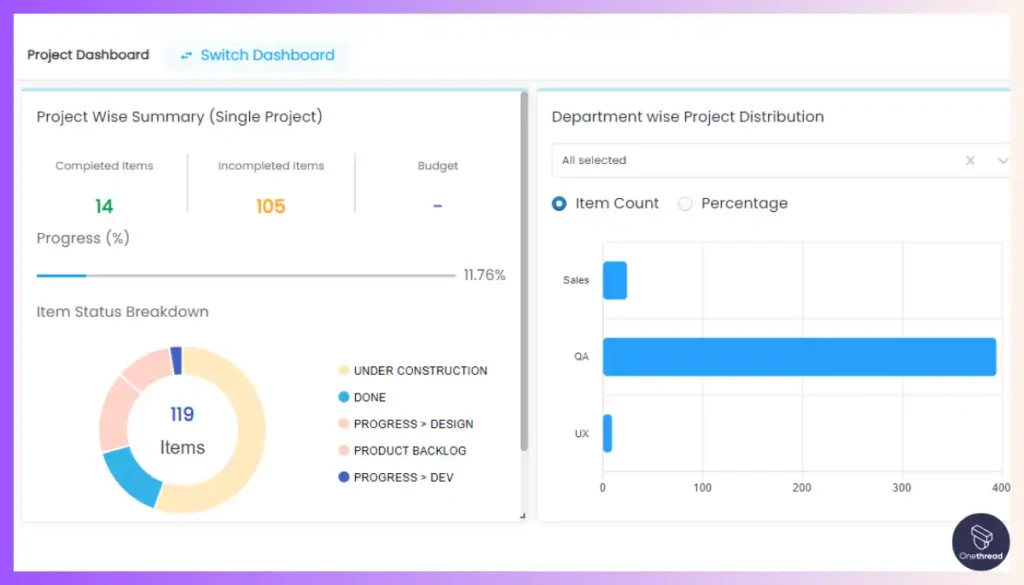
Managing tasks from start to finish becomes effortless with a task management tool. Whether you’re handling personal task lists or collaborating with the entire team, a work management tool keeps everything organized in one place.
You can create tasks, attach files, set priorities, and track work progress seamlessly, eliminating the need for switching between multiple tools or browser windows.
Additionally, with the convenience of cloud technology, you can securely access your work from anywhere in the world, regardless of time zones.
Onethread allows you to create, assign, and comment on tasks from anywhere. Try Onethread today!
Seamless Software Integration
Work management software offers the convenience of integrating various applications within a single tool. This allows you to seamlessly use your preferred apps, such as customer relationship management and accounting tools, without switching between multiple platforms.
By centralizing these software solutions, you can access all the necessary information in one place, eliminating the hassle of juggling between different tools and enhancing overall productivity.
Centralizing Information for Efficient Collaboration
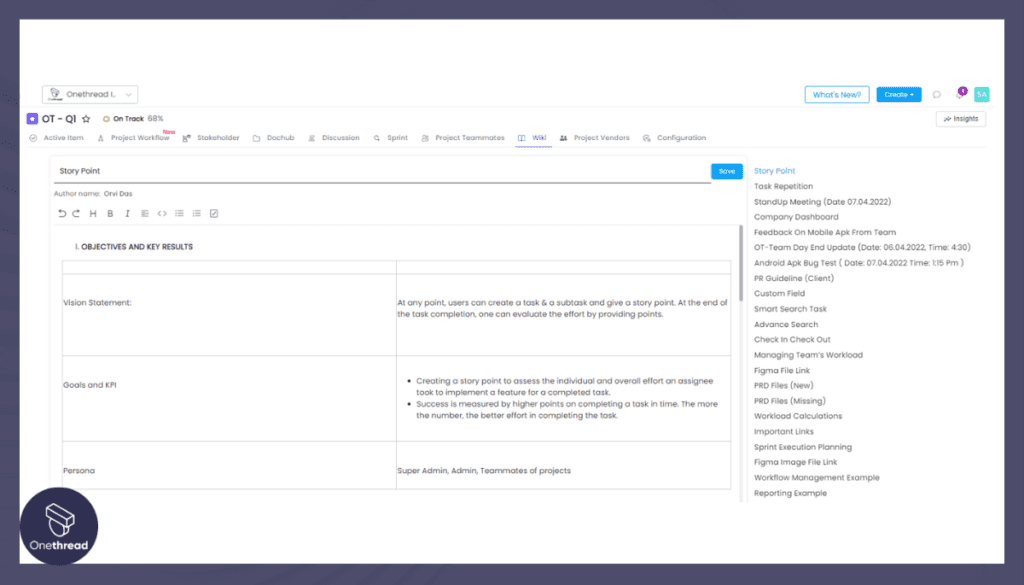
As teams dive into projects, they often encounter overwhelming workloads and struggle with file management. A work management app serves as a centralized hub, simplifying the process of sharing and managing files.
This eliminates the need for multiple tools and promotes efficient collaboration. Team members can easily share files with colleagues involved in the project, ensuring smooth workflow and uninterrupted productivity.
Onethread’s Wiki feature allows you to create centralized documentation to share with your whole team!
Cultivating Transparency in Team Collaboration
Transparency is crucial for effective communication within a team. Work management solutions promote transparency by establishing a clear and honest work process. This fosters value across various organizational functions.
Team members can easily track the progress of each stage, including who is involved, their roles and responsibilities, and project-related information. A transparent work culture nurtured by these tools enhances collaboration and keeps everyone informed.
Prioritizing What Matters Most
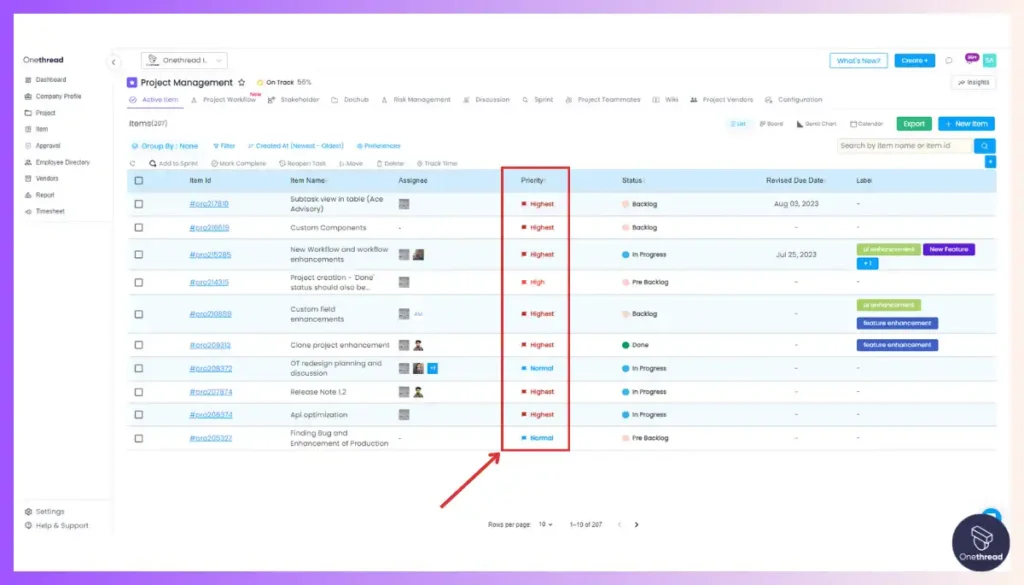
Identifying and prioritizing important tasks can be challenging, leading to disorganization and time mismanagement. However, work management solutions offer a solution to this chaos.
By selecting a software that allows task creation and project prioritization, you can focus on what truly matters.
For instance, Onethread helps organize your workspace, eliminate procrastination, and focus on one task at a time.
Reducing Unnecessary Meetings
Frequent and unproductive meetings consume valuable time and hinder productivity. However, working management tools provide an alternative. With these tools, you and your team can access real-time project status updates without the need for excessive meetings.
This eliminates the need for countless progress update sessions and allows for more efficient use of everyone’s time.
Streamlining Project Scheduling
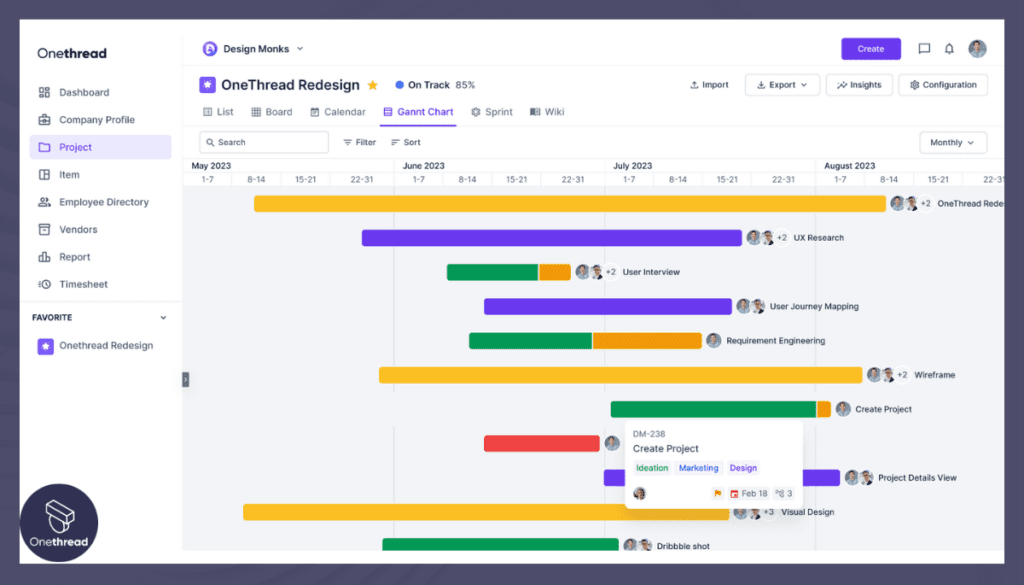
Managing project milestones and deadlines can be challenging, especially when unexpected changes occur. Without proper collaboration and a clear project timeline, organizing tasks within the chaos of an unpredictable project life cycle becomes nearly impossible.
Thankfully, work management solutions equipped with collaborative features and intuitive Gantt chart tools empower managers to efficiently schedule, update, and organize projects and resources.
Onethread allows you multiple views, including lists, kanban board, gantt chart, and calendar to give you the bird’s eye view of your project.
Ensuring Fair Workload Distribution
Delegating tasks to team members can be challenging when it comes to fairness. However, with the help of an online workload management system, you can assign tasks based on individual skills and availability.
This ensures a more balanced distribution of work among team members. By having clear visibility into who is working on what and when, you can identify if someone is overloaded and make necessary adjustments to prevent overtime and reduce stress.
Simplifying Work Delegation
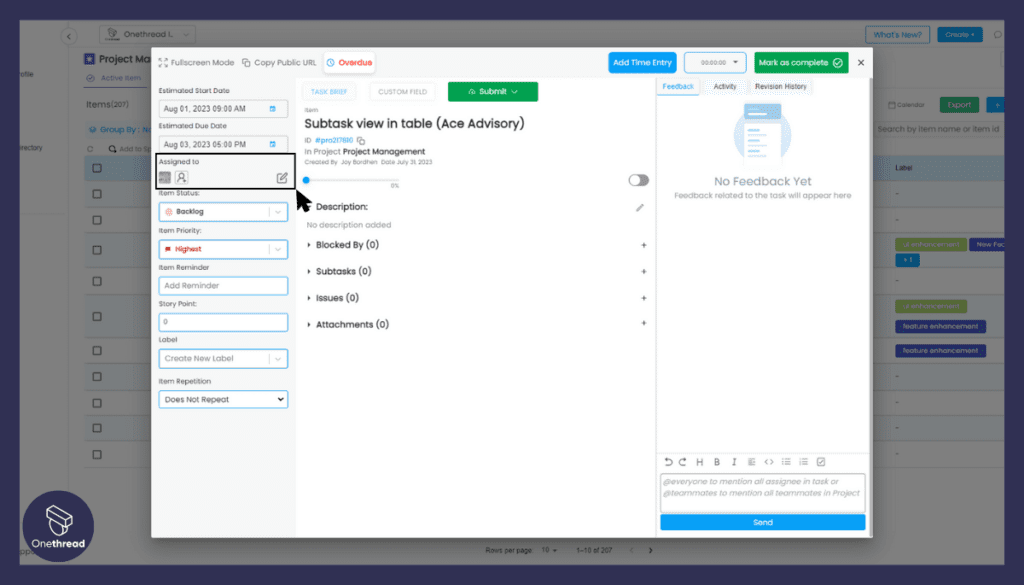
Delegating tasks is often a time-consuming process for managers, especially in complex projects. However, utilizing a work management tool can significantly streamline this process.
Project managers can easily insert tasks into the project timeline, assign them to specific individuals or groups, collaborate through task comments, and monitor progress in real-time. This centralized approach saves time and enhances efficiency, allowing managers to stay informed about task statuses and project developments.
In Onethread, you have separate discussion thread for every single task, allowing you to delegate work to others by mentioning them!
Enabling Flexible and Remote Work
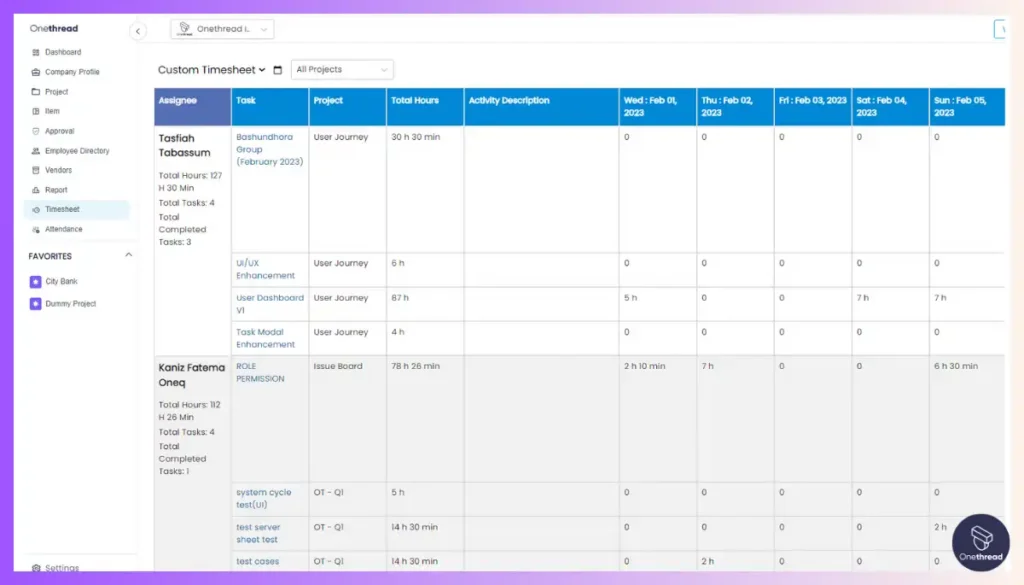
The adoption of flexible and remote work options is becoming increasingly prevalent in today’s business landscape. Working management software facilitates effective collaboration in such work environments.
It empowers teams to work together seamlessly, while providing managers the ability to oversee progress without the need for physical check-ins. This flexibility promotes productivity and ensures smooth project execution, regardless of team members’ locations.
Onethread facilitates remote working through features like timesheet, discussion, announcements, and much more!
Monitoring Project Costs
Keeping a close eye on project costs and preventing budget overruns is a crucial responsibility for managers. Work management tools offer quantifiable evidence of the time spent on tasks, allowing managers to track expenses in real-time.
With this information at their fingertips, managers can make informed decisions, allocate resources and hours strategically, and maintain control over the project budget.
Conclusion
Work management is crucial for productivity and success. By setting clear goals and priorities, you can stay focused on what truly matters and avoid wasting time on non-essential tasks. Developing efficient workflows allows you to streamline your processes and accomplish more in less time.
It is also important to manage your time effectively by prioritizing tasks, avoiding procrastination, and utilizing tools such as calendars or task management apps. Delegating tasks when possible can help lighten your workload and allow you to focus on higher-level responsibilities.
Continuously evaluating and improving your work management strategies is essential for long-term success. Regularly assessing what methods are working well and what areas need improvement will help you refine your approach over time.
By implementing these strategies consistently, you can increase productivity, reduce stress, and achieve better work-life balance. Remember that effective work management is a skill that can be learned and improved upon with practice.
So start implementing these techniques today and reap the benefits of a more organized and productive work life!
Frequently Asked Questions about Work Management
How Can I Effectively Communicate My Goals And Priorities To My Team?
To effectively communicate your goals and priorities to your team, clearly articulate what you want to achieve and why it is important. Regularly provide updates, listen to their feedback, and collaborate on action plans.
What Are Some Strategies For Streamlining And Improving Workflow Processes?
Streamlining and improving workflow processes can be achieved by implementing clear communication channels, setting specific goals and deadlines, assigning tasks based on individual strengths, using technology tools for task management, and regularly evaluating and adjusting the process.
How Can I Better Manage My Time To Ensure Maximum Productivity?
To better manage your time and ensure maximum productivity, prioritize tasks based on importance and urgency. Use time-blocking to allocate specific periods for different activities, minimize distractions, and take regular breaks to maintain focus.
When Should I Delegate Tasks And How Can I Ensure They Are Completed Successfully?
When should you delegate tasks? Delegation is effective when you have too much on your plate or lack expertise. To ensure successful completion, clearly communicate expectations, provide necessary resources, and offer support throughout the process.
What Are Some Practical Tips For Staying Organized And Reducing Clutter In The Workplace?
To stay organized and reduce clutter in your workplace, start by decluttering regularly and creating an organized system for papers and files. Use digital tools, like calendars and project management software, to keep track of tasks and deadlines.
